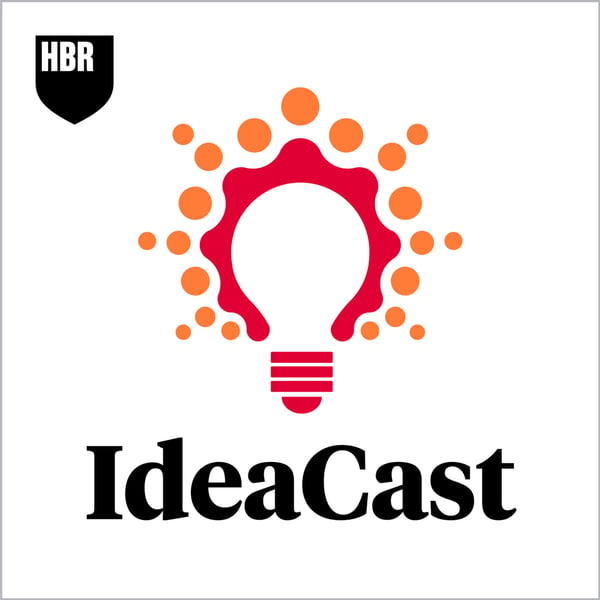A Theoretical Physicist (and Entrepreneur) on Why Companies Stop Innovating
HBR IdeaCast
Harvard Business Review
4.4 • 1.9K Ratings
🗓️ 19 March 2019
⏱️ 25 minutes
🧾️ Download transcript
Summary
Transcript
Click on a timestamp to play from that location
| 0:00.0 | Looking for a good book? Pick up your next business read during HBR Cyber Monday sale. |
| 0:06.0 | Head to store.HBR.org and use promo code cyber23 to save big on HBR books, tools, curated collections and more. That's store. |
| 0:16.6 | HBR.org. Happy shopping. Welcome to the HBR Ideacast from Harvard Business Review. I'm Kurt Nickish. For a while there, Nokia was the poster child of an innovative company. |
| 0:50.0 | The Finnish conglomerate went from manufacturing rubber boots and toilet paper to building the first cellular network. |
| 0:57.0 | In the early 2000s, Nokia was selling half the mobile phones around the world. |
| 1:01.0 | CEO Yorma Ollila pinned the success on culture. |
| 1:05.0 | You're allowed to have a bit of fun, he told Fortune magazine, to think unlike the norm, |
| 1:10.0 | to make a mistake. Think unlike the norm is what a team of Nokia engineers did in 2004, |
| 1:16.4 | they pitched a phone with a color touch screen and an app store to go with it, |
| 1:21.1 | but company leadership shot the ideas down. Well, Apple launched those three years |
| 1:26.4 | later and the rest is history. So how did Nokia go from being a company where innovation |
| 1:32.2 | is taking off everyone as nimble and things just |
| 1:35.2 | seem to click to one that seemingly overnight get stuck in old ways. |
| 1:41.2 | Our guest today compares this sudden shift in business to a phase transition in |
| 1:45.6 | chemistry like when a glass of water freezes becoming ice and he believes |
| 1:50.3 | companies need to understand the forces working against them. |
| 1:54.5 | Just like adding salt to water to lower its freezing temperature, he says companies can add things |
| 1:59.4 | like better incentives to maintain an innovative structure. Our guest today is Safi Bacall. |
| 2:05.4 | He's the former CEO of the biotech company Sinta Pharmaceuticals. He's the author of the |
| 2:10.8 | book Loone Shots How to Nurture the Crazy Ideas that |
| 2:14.4 | win wars, cure diseases, and transform industries. |
| 2:18.0 | And he wrote the HBR article, The Innovation Equation. |
... |
Please login to see the full transcript.
Disclaimer: The podcast and artwork embedded on this page are from Harvard Business Review, and are the property of its owner and not affiliated with or endorsed by Tapesearch.
Generated transcripts are the property of Harvard Business Review and are distributed freely under the Fair Use doctrine. Transcripts generated by Tapesearch are not guaranteed to be accurate.
Copyright © Tapesearch 2025.

